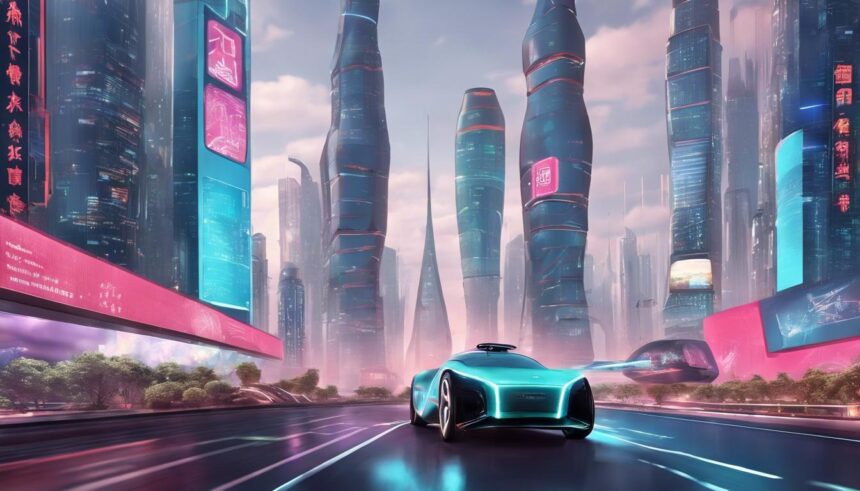China’s advances in autonomous vehicle technology and its booming market, projected to reach US$ 31.60 billion by 2030, signal a major shift in global urban mobility and logistics.
In a remarkable stride toward the future of transportation, China is setting the pace in the global race for autonomous vehicle development and adoption. With the autonomous vehicle market in China forecasted to soar from US$ 8.01 billion in 2023 to an impressive US$ 31.60 billion by 2030, the nation stands at the precipice of a technological revolution that could redefine urban mobility and logistics.
China’s automobile industry, already a pivotal force globally, is undergoing a seismic shift driven by the adoption of ACES (Autonomy, Connectivity, Electrification, and Shared mobility) standards. This transition is further accelerated by China’s ambitious carbon neutrality commitments and goals for reaching a carbon peak. The evolvement of autonomous vehicles (AVs) exemplifies a significant leap towards the realization of intelligent and connected vehicles (ICVs), promising a transformative technological era for the Chinese car sector.
The deployment of self-driving technology is not limited to personal vehicles. A wide array of applications, from autonomous taxis, known as robotaxis, to automated freight vehicles, exemplifies the extensive potential this technology harbors. In various Chinese cities, the advent of robotaxis has already made the leap from science fiction to reality, providing residents with a glimpse into a future where vehicles navigate the streets without human intervention.
At the forefront of this transformation are leading Chinese technology companies, including AutoX, Baidu Apollo, Didi Chuxing, Pony.ai, TuSimple, and WeRide. These firms are aggressively advancing the research, development, and practical application of autonomous technology. For instance, Baidu Apollo aims to significantly expand its autonomous ride-hailing platform, Apollo Go, hoping to cover 100 cities by 2030. This ambitious plan underscores China’s intent to assert global leadership in autonomous driving technology.
China’s rapid progression in AV technology is also facilitated by a favorable regulatory environment. Beijing’s encouragement of extensive AV testing and its aim to include partial self-driving technology in 50% of all new vehicle sales by 2025 signal strong governmental support for the industry. Recent policies have further promoted the advancement and commercialization of AV technology across the nation, with milestones such as the issuance of the first permits in China for charging fares for fully autonomous ride-hailing services within specific areas, marking significant regulatory advancements.
Despite the burgeoning embrace of electric and hybrid powertrains, the internal combustion engine remains a dominant player in the autonomous vehicle market in China. This resilience underscores the continued relevance of traditional automotive technologies amidst the revolution brought about by intelligent and connected vehicles.
The transformative potential of autonomous vehicles extends beyond personal mobility to reshape sectors like civil services, defense, transportation & logistics, and construction. As autonomous driving technology matures and the industry moves towards consolidation, China’s vision of pioneering a smart, efficient, and environmentally friendly transportation future is gradually materializing.
In conclusion, the burgeoning autonomous vehicle market in China is not merely a testament to the country’s technological prowess but also a beacon for the global future of transportation. With solid policy support, cutting-edge research and development, and an ambitious vision, China is poised to lead the world into a new era of mobility.





